Description
Glycomet 850 mg is an antidiabetic agent containing metformin as the active constituent. Metformin belongs to a class of drugs known as biguanides that can be administered alone or together with sulfonylureas. It is effective when used as an adjunct to diet and exercise to improve glycaemic control in adults and children with type 2 diabetes mellitus.
The exact mechanism of action of the drug is still not understood. Still, clinical studies suggest that the antidiabetic agent plays a part in increasing the adherence of insulin to its receptors and potentiating insulin action.
The management of Type 2 diabetes requires aggressive treatment to achieve glycaemic control and cardiovascular risk factor goals. To treat diabetes mellitus, metformin, an old and widely accepted first-line agent stands out not only for its ant glycaemic properties but also for its beneficial effects beyond glycaemic control. The antidiabetic drug is also known to improve oxidative stress lipid profiles, insulin resistance, and fat redistribution. These properties contribute to a decreased risk of cardiovascular outcomes. The only thing that could rearrange the metabolic activities are the ability to control the glycaemic index.
Product Description
Glycomet 850 mg should not be used in patients with severe kidney problems, known hypersensitivity to metformin, acute or chronic metabolic acidosis. Diabetic ketoacidosis should be treated with insulin. Before use, patients should inform of all the potential risks and benefits of Glycomet. They should also be informed about the importance of adherence to dietary instructions, follow a regular exercise program, monitor normal blood glucose level and renal functions. There is a risk of lactic acidosis associated with the use of the antidiabetic drug. Patients should be advised to discontinue treatment straight away and promptly notify their doctor if myalgia, unusual tiredness, explained hyperventilation, or other non-specific symptoms occur. Once a patient’s body adapts to the medication and its effects, the gastrointestinal symptoms, which are common during the initial days of the treatment unlikely to be drug related. The occurrence of gastrointestinal symptoms in the later phase could be due to lactic acidosis or other severe serious complications. Patients should be careful about alcohol intake while receiving diabetes medicine.
Side Effects
Stop taking Glycomet 850 mg for a short time if you have a condition that may be associated with dehydration that causes significant loss of fluids. The symptoms include severe vomiting, fever, diarrhoea, drinking less fluid than normal. Speak to your doctor to get more information. Discontinue treatment and contact a doctor if you experience lactic acidosis symptoms as this condition may lead to coma. Symptoms include stomach-ache, vomiting, muscle cramps, breathing difficulties, reduced body temperature, and severe tiredness. Lactic acidosis is severe and must be treated under the guidance of a doctor. If you are asked to undergo major surgery, you must discontinue treatment during and after some time of the procedure. Your doctor will decide when to discontinue treatment and restart the metformin therapy.
How to Use
Glycomet 850 mg should be best taken with food to avoid nausea and abdominal pain. Follow your doctor’s instructions when it comes to taking medicine. Make sure you drink plenty of fluids while receiving this antidiabetic agent. The dosage is usually based on the medical condition, response to treatment, and the use of certain other medications. Be sure to tell your doctor about all the medications you have been using other medications, including prescription medications and herbal supplements. Your doctor may ask you to begin with a lower dose of metformin gradually to reduce side effects.


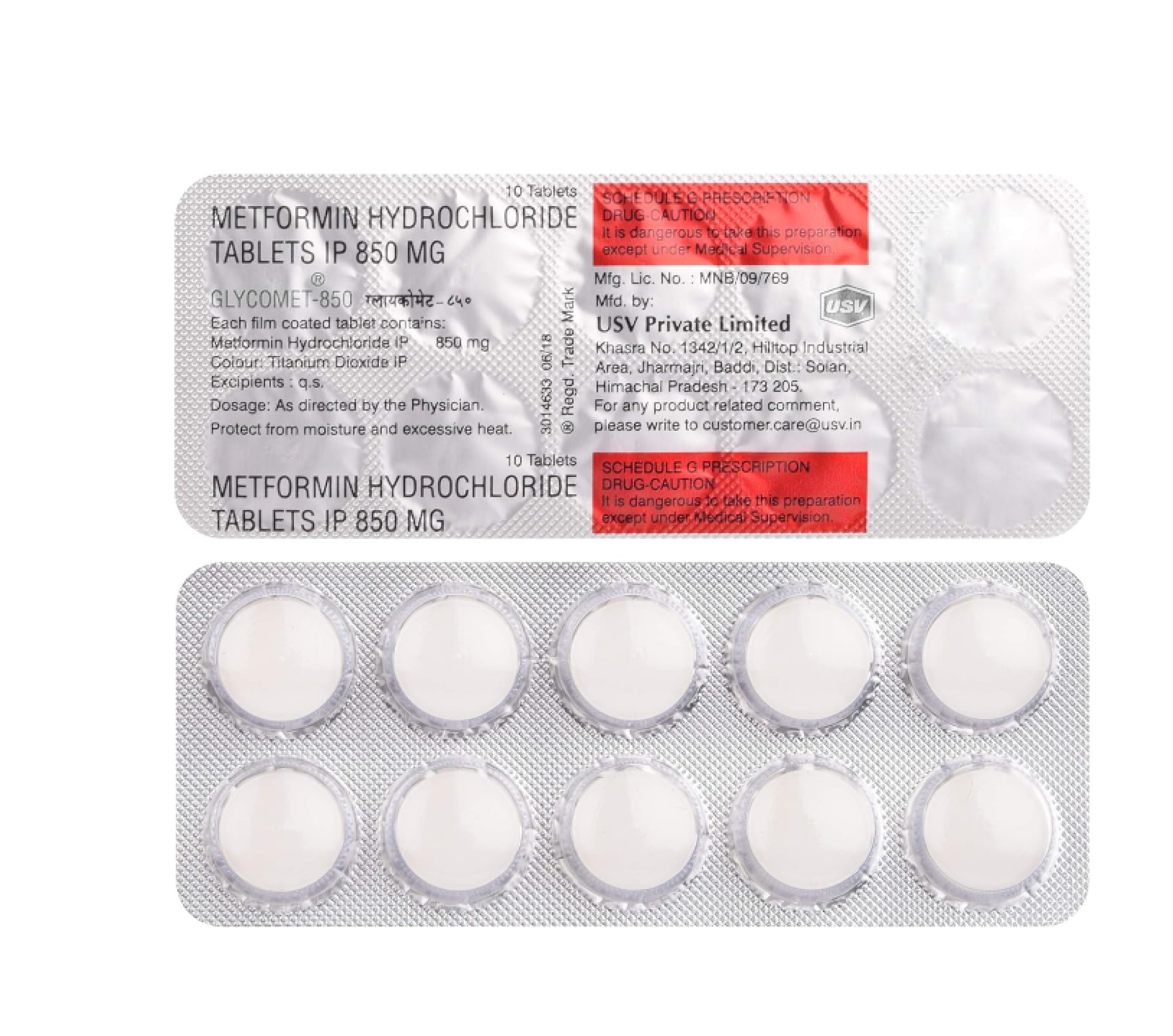
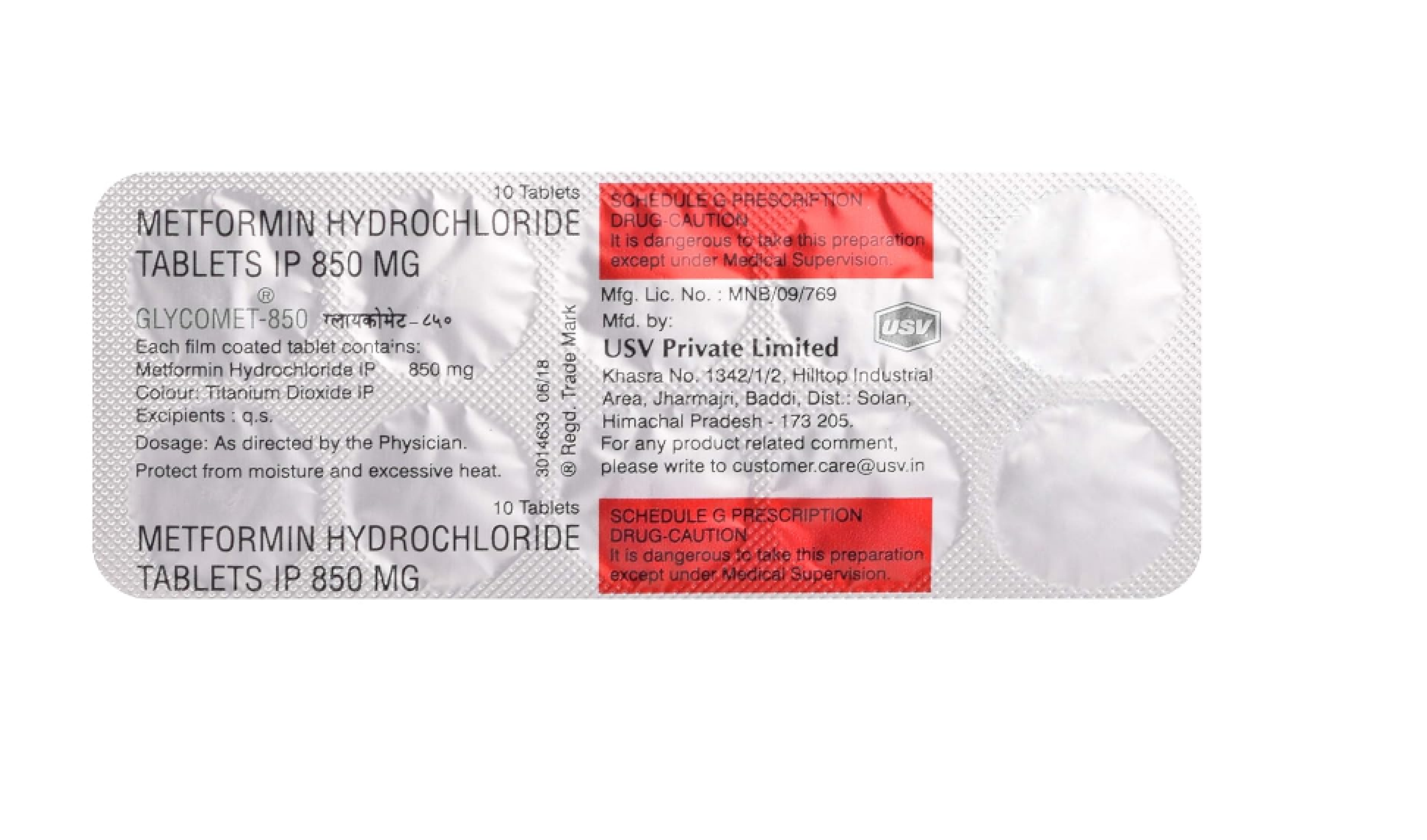

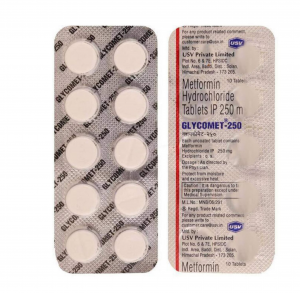
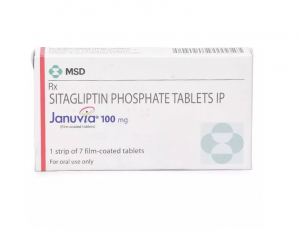
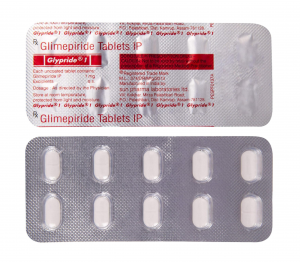
1 review for Glycomet 850mg Tablet
There are no reviews yet.